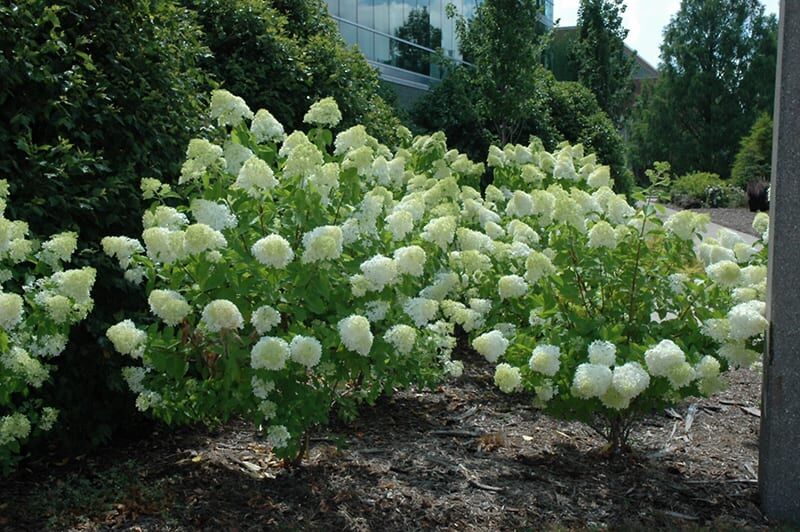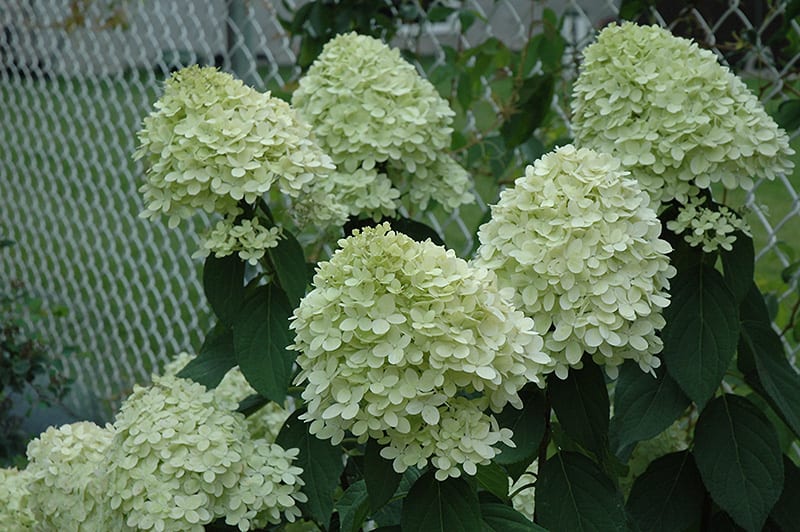Limelight Hydrangea
Simply a stunning development in the world of hydrangeas, this new variety features enormous, dense upright panicles of flower heads that start out a soft lime green, fading over the summer to white and finally brown in fall, one of the hardier selections.
Please contact your local store for product availability.
Find a garden center near you.
Species: paniculata
Plant Height: 96 in.
Spread: 96 in.
Evergreen: No
Plant Form: upright spreading
Summer Foliage Color: green
Minimum Sunlight: shade
Maximum Sunlight: full sun
Limelight Hydrangea features bold conical lime green flowers with white overtones at the ends of the branches from mid summer to late fall. The flowers are excellent for cutting. It has green foliage throughout the season. The pointy leaves do not develop any appreciable fall color. The fruit is not ornamentally significant.
Limelight Hydrangea is a multi-stemmed deciduous shrub with an upright spreading habit of growth. Its relatively coarse texture can be used to stand it apart from other landscape plants with finer foliage.This is a high maintenance shrub that will require regular care and upkeep, and is best pruned in late winter once the threat of extreme cold has passed. It has no significant negative characteristics.Limelight Hydrangea is recommended for the following landscape applications;AccentMass PlantingGeneral Garden Use
Limelight Hydrangea will grow to be about 8 feet tall at maturity, with a spread of 8 feet. It tends to be a little leggy, with a typical clearance of 2 feet from the ground, and is suitable for planting under power lines. It grows at a medium rate, and under ideal conditions can be expected to live for 40 years or more.This shrub performs well in both full sun and full shade. It prefers to grow in average to moist conditions, and shouldn't be allowed to dry out. It is not particular as to soil type or pH. It is highly tolerant of urban pollution and will even thrive in inner city environments. Consider applying a thick mulch around the root zone in winter to protect it in exposed locations or colder microclimates. This is a selected variety of a species not originally from North America.

